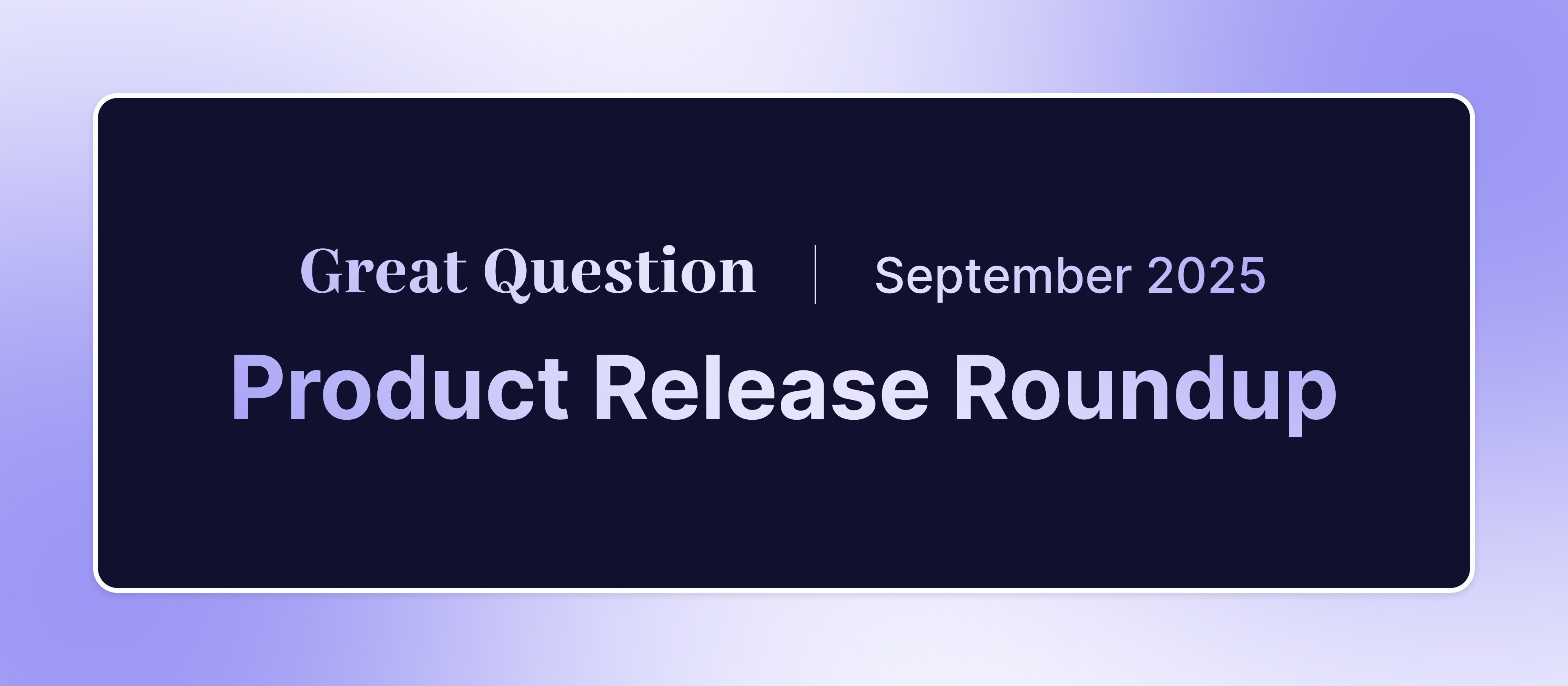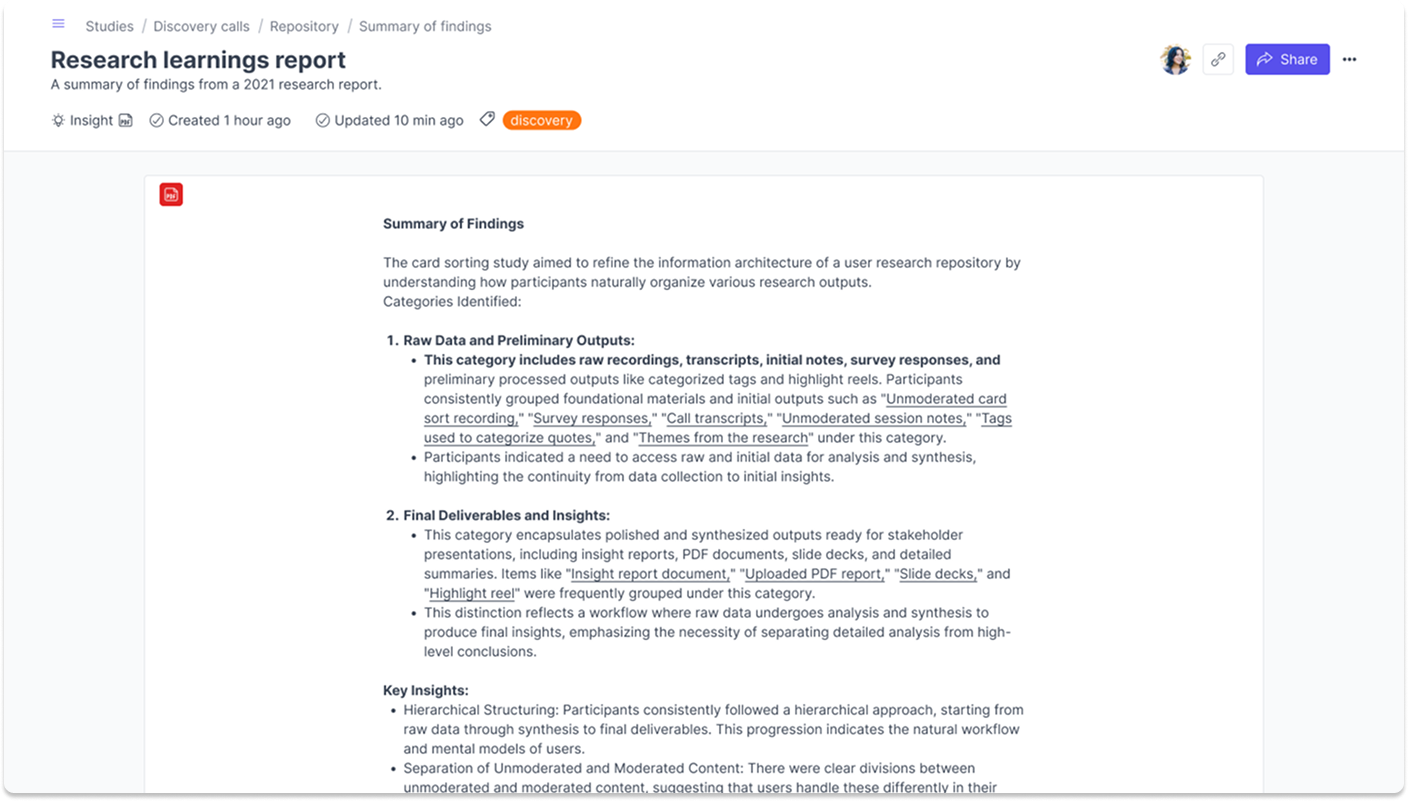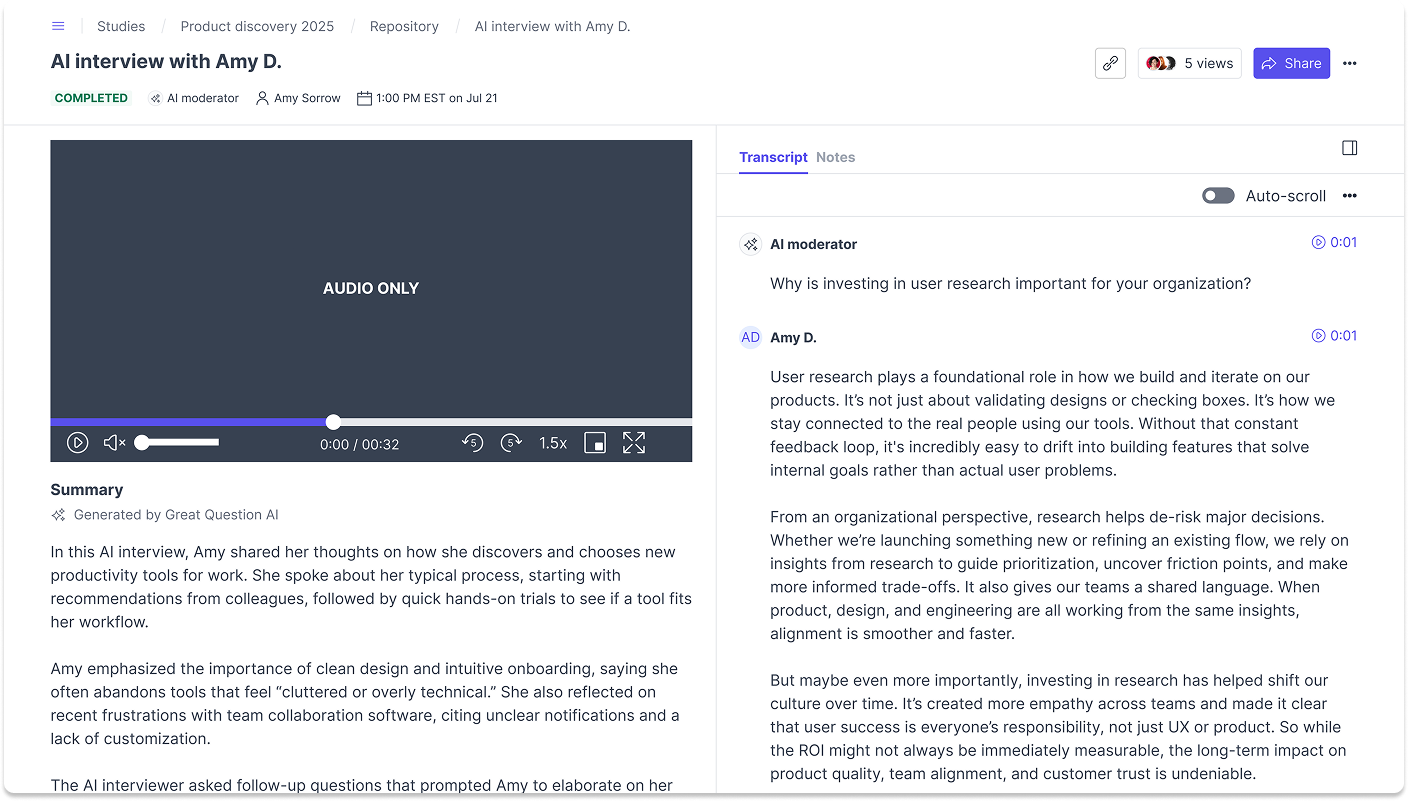
We listened, we built, we're ready to test: better screeners are here in beta and AI moderation beta launches next. Don't miss out! Here's what's new. ✨
Set qualification rules upfront, then let automation handle the sorting. Tag answers as qualifying or disqualifying, and route participants with branching logic. Set automation rules so qualified participants can participate without manual review while others can be automatically screened out to a customizable disqualification page. Review your entire screener's logic in one panel and see qualification status when crafting invites.
Upload research reports, documentation, and reference materials directly to your repository. View, download, tag, and search through PDFs just like any other artifact, keeping all your research context in one place. We're releasing it gradually over the next 2 weeks. Get in touch if you want early access.

Credits from purchased bundles now automatically allocate when you publish requests, and new funding breakdown views show exactly where your money goes. Perfect for teams using Respondent's panel to recruit participants where credit costs and participant payouts differ.
View your credit allocations →

Choose how uploaded images display in unmoderated studies with fit to width, actual size, or other sizing options. Upload once, pick the view that works best.

See exactly where "now" sits in your calendar with a live red time indicator. Perfect for global teams who need to quickly orient themselves across different timezone views.

The first in a series of AI capabilities we’re bringing to customers is AI Moderated Interviews. Designed for researchers who need more than surveys but do not have time for hundreds of interviews.
Run adaptive, natural interviews with AI moderators that follow up, probe, and adjust in real time while capturing the conversation-level depth that surveys miss.

That's September's feature lineup. Raise your hand for the betas, and tell us what you think. Your feedback shapes what we build next.
Keep asking great questions,
- The Great Question Team